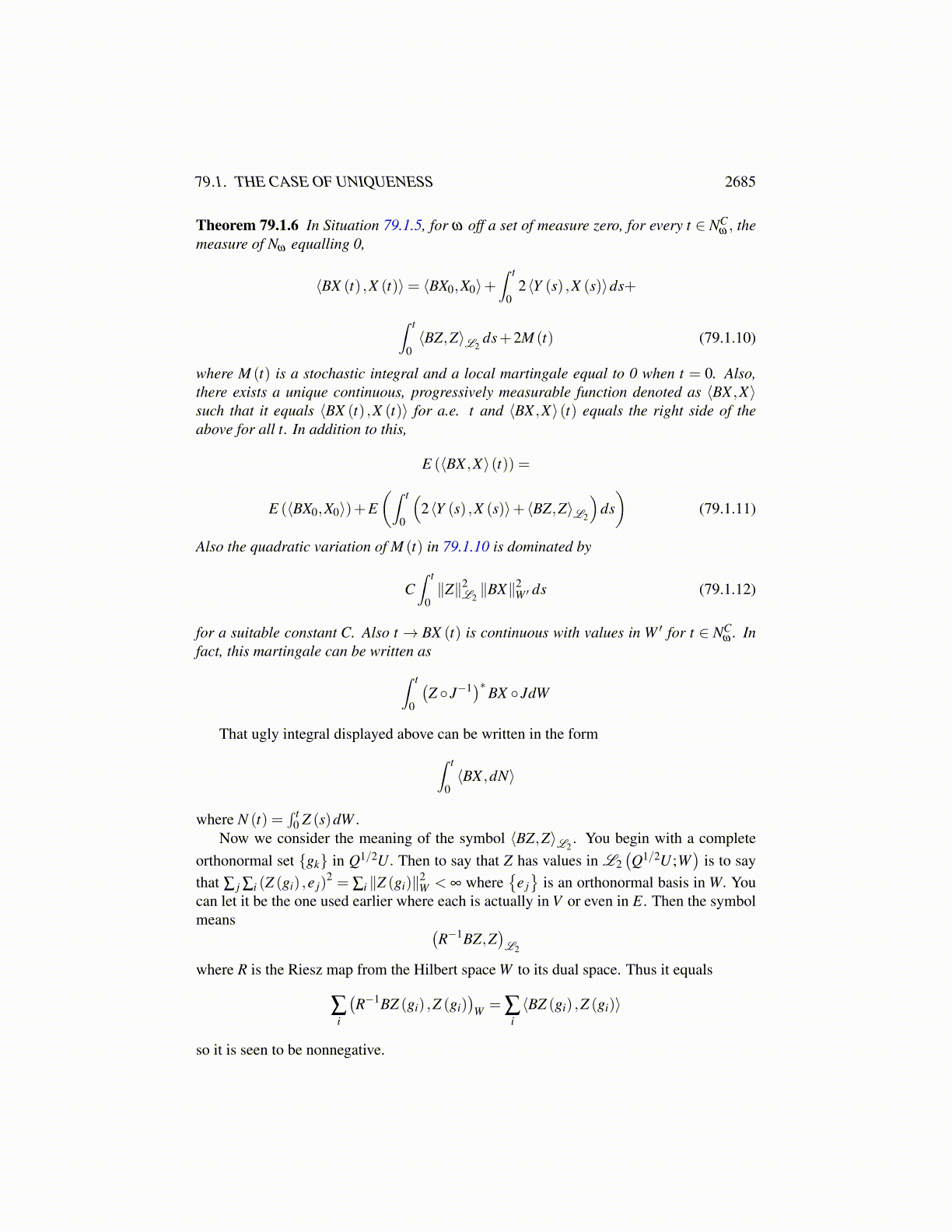
79.1. THE CASE OF UNIQUENESS 2685
Limit condition
Let U be a Banach space dense in V and that if ui ⇀ u in VI and u∗i ∈A(ui) with u∗i ⇀ u∗
in V ′I and t→ Bui (t) is continuous and
supi
supt ̸=s
∥Bui (t)−Bui (s)∥U ′|t− s|α
≤C (79.1.5)
then iflim sup
i→∞
⟨u∗i ,ui−u⟩V ′I ,VI≤ 0 (79.1.6)
it follows that for all v ∈ VI , there exists u∗(v) ∈ Au such that
lim infi→∞⟨u∗i ,ui− v⟩V ′I ,VI
≥ ⟨u∗ (v) ,u− v⟩V ′I ,VI(79.1.7)
As to B(ω) , it is k (ω)B where B ∈ L (W,W ′) and is self adjoint and nonnegativewhere k is F0 measurable.
Progressively measurable condition
Condition 79.1.2 For each t ≤ T, if ω → u(·,ω) is Ft measurable into V[0,t], then thereexists a Ft measurable selection of A(u(·,ω) ,ω) into V ′[0,t].
Then there is a theorem. It was Theorem 77.7.4 which gave existence and uniquenessof progressively measurable solutions u to the integral equation.
Theorem 79.1.3 Assume the above conditions, 79.1.1 - , 79.1.7 along with the progressivemeasurability condition 79.1.2. Let u0 be F0 measurable and ω→ B(ω) also F0 measur-able and (t,ω)→X[0,t] (t) f (t,ω) is B ([0, t])×Ft product measurable into V ′ for eacht.
B(ω) = k (ω)B, k (ω)≥ 0,k measurable.
Also let t→ q(t,ω) be continuous and q is progressively measurable into V. Suppose thereis at most one solution to
Bu(t,ω)+∫ t
0z(s,ω)ds =
∫ t
0f (s,ω)ds+Bu0 (ω)+Bq(t,ω) , (79.1.8)
for each ω . Then the solution to the above integral equation u is progressively measurable.Moreover, for each ω , both Bu(t,ω) = B(u(t,ω)) for a.e. t and z(t,ω) ∈ A(u(t,ω) ,ω)for a.e. t. Also, for each a ∈ [0,T ] ,
Bu(t,ω)+∫ t
az(s,ω)ds =
∫ t
af (s,ω)ds+Bu(a,ω)+Bq(t,ω)−Bq(a,ω)
Letting q(t) =∫ t
0 ΦndW defined above with the filtration also being the one obtainedfrom the Wiener process, this implies the following theorem. The σ algebra of progres-sively measurable sets will be denoted by P .